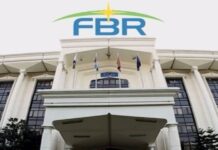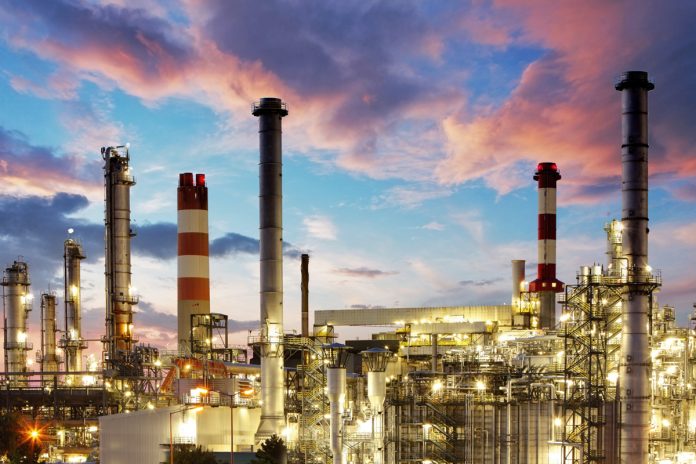ISLAMABAD: The upcoming meeting of the Cabinet Committee on Energy (CCoE) is likely to review the revised draft of Pakistan Oil Refining Policy 2021.
According to sources, the next CCoE meeting is likely to be held during this ongoing week and this meeting would decide on the revised draft Pakistan Oil Refining Policy 2021 which would be tabled by the petroleum division.
“The minister for energy (petroleum division) has seen and authorized submission of the summary to the CCoE of the Cabinet,” said sources.
Following the direction of the Economic Coordination Committee (ECC) of the Cabinet to place a summary before the CCoE, the petroleum division has prepared a draft of the Pakistan Oil Refining Policy 2021 for CCoE’s consideration and approval said sources.
Earlier, the ECC of the Cabinet on August 11 had directed the petroleum division to place a summary before the CCoE and seek its approval. The petroleum division submitted a summary dated August 13 for the CCoE consideration.
The CCoE in its meeting held on August 20 directed the petroleum division to review the policy concerning specific observations highlighted by the forum and submit the revised draft policy to the CCoE for consideration after incorporating viable recommendations therein.
As per sources, the petroleum division has accordingly reviewed the CCoE’s observation and drafted a point-wise response after incorporating certain modifications in the draft policy.
According to pointwise response, upfront utilization of incremental tariff protection revenue was previously provided in the policy with effect from 1st January 2022, however, under the new proposed arrangement, this amount can only be used after awarding of EPC (engineering, procurement, and construction) contract by the respective refineries which is expected by the start of 2024 (Sub-section 9.2.3.9 of the Policy). Similarly, Oil and Gas Regulatory Authority (OGRA) will monitor the incremental revenue to be deposited in a special reserve account by each refinery under a separate bank account to be opened in the National Bank of Pakistan (NBP) and ensure its utilization for the expansion of the refineries, on proportionate basis of the incremental revenue and refinery’s contribution (under the principle of Sub-section 9.2.3.9 of the Policy). Likewise, to simplify the government’s arrangements, the mechanism of hiring of joint external consultants as proposed during the presentation in CCoE’s meeting dated August 20 has been dropped. More, as force majeure is a project-specific contractual arrangement hence it has been deleted from the draft Policy (Sub-section 9.2.3.11 of the Policy). Furthermore, previously, a bank guarantee worth Rs500 million per refinery was required till the financial close. As an abundant precaution, this has been extended till the commissioning of the project (COD). The form and features of the guarantee will be subject to acceptance by MEPD (Sub-section 9.2.3.11 of the Policy).
Sources said that the government has been emphasizing refineries to produce Euro-V specification fuels and the proposed oil refining policy 2021 is likely to provide incentives for up-gradation of existing refineries to produce Euro-V specification products as well as encourage potential investors to establish a new state of the art deep conversion refineries through fiscal support.
“The existing refineries have progressively upgraded their infrastructure, however, due to high capital requirement, lack of tariff protection and low returns on investment, the existing refineries could not keep pace with the technology around the world,” said the sources.
They added that a huge capital investment of around USD2-3.5 billion is required for producing Euro-V specification products which can only be arranged by the refineries from lending institutes at commercial terms.
As per details, petroleum products contribute 31 per cent of the primary energy mix of the country with overall consumption of around 20 million tons per annum (MTPA). Out of this, the indigenous production is around 11 MTPA (using 30pc local crude) while deficit petroleum products of 9 MTPA is imported. The deficit crude oil and petroleum products are imported from Saudi Arabia, Abu Dhabi (UAE), Kuwait and open markets of the Gulf and Southeast Asia regions among others.
The indigenous and imported crude is refined by five major refineries. Currently, five players are operating in the oil refining sector in Pakistan including, Pak-Arab Refinery Limited (PARCO), Attock Petroleum Limited (ARL), National refinery Limited (NRL), Pakistan Refinery Limited (PRL) and Byco Petroleum Pakistan Limited (BPPL). All the refineries are hydroskimming refineries, except for PARCO which is a mild-conversion refinery. However, four out of five refineries are based on old technologies such as hydroskimming. The fifth refinery i-e Pak Arab Refinery Limited (PARCO) is using semi-conversion technology which is also more than twenty years old. These refineries have up-graded their plants during 2015-18 and installed Diesel HydroDesulfurization (DHDs) for producing Euro-II specification High-Speed Diesel (HSD) and Isomerization plants for enhancing the production of Motor Spirit (Petrol) at a cost of around Rs 75bn.
It is also learnt from sources that all five refineries of the country are currently in need of financial support from the government to improve their financial position for up-gradation purposes. Similarly, the petroleum products demand-supply projections have indicated a requirement of the additional refining capacity of at least 300,000 barrels per day (bpd) at a cost of USD10-15bn by 2030. This would require a considerable lead time and huge investment for which clear government policy along with attractive incentives need to be in place, said sources.
It is pertinent to mention that local refineries are strategic assets for the country and their sustainability & continuity is essential for the country’s prosperity and economic development. Similarly, Pakistan’s local refineries are the backbone of heavy industrial development and are intrinsically connected to the defence and energy security needs of the country. They have a pivotal role in the energy supply chain and economic development of Pakistan.

























